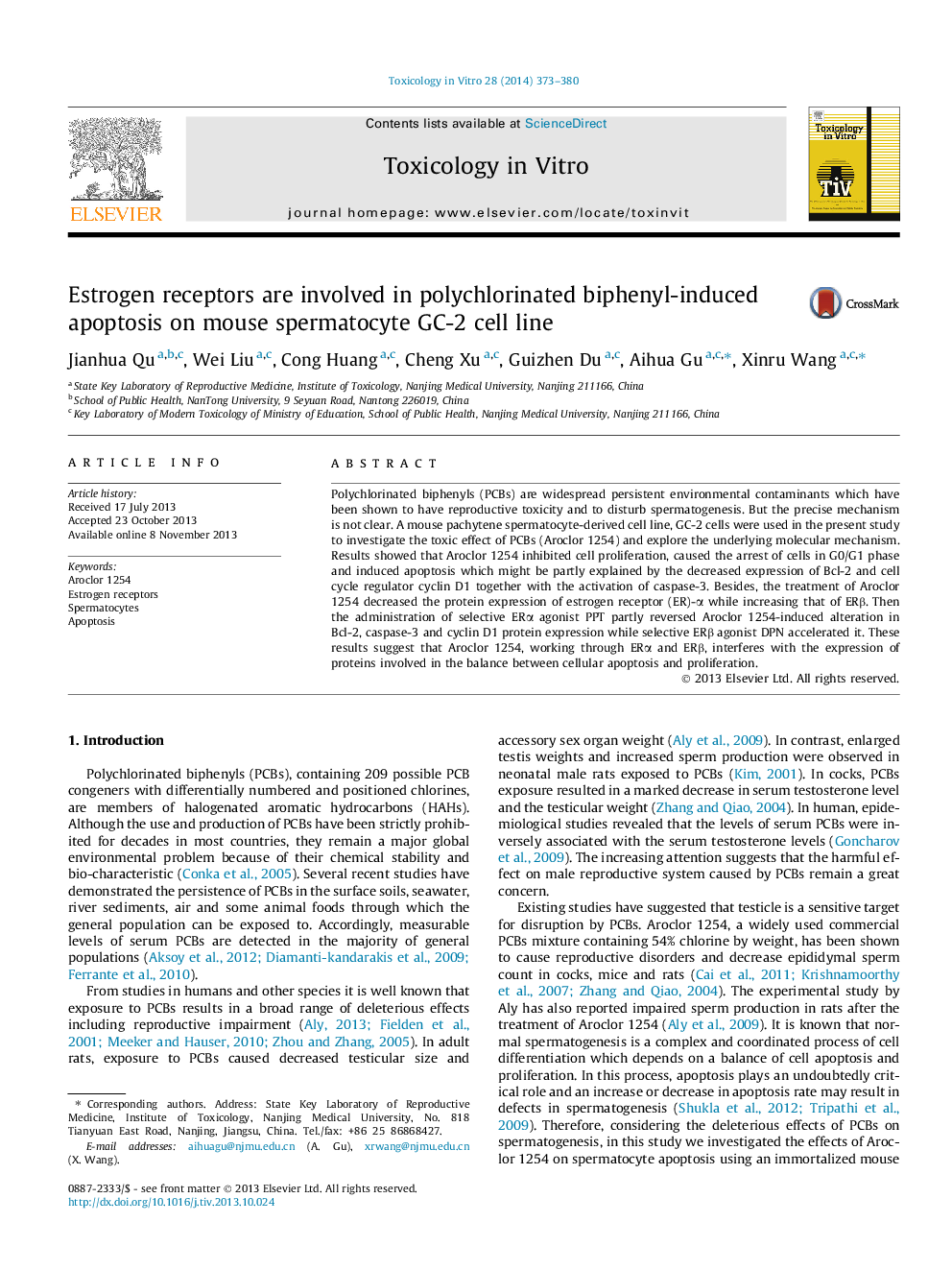| Article ID | Journal | Published Year | Pages | File Type |
|---|---|---|---|---|
| 5861876 | Toxicology in Vitro | 2014 | 8 Pages |
â¢Aroclor 1254 inhibited cell proliferation and induced apoptosis in mouse spermatocyte GC-2 cells.â¢Aroclor 1254 caused the arrest of cells in G0/G1 phase in GC-2 cells.â¢The protein expression levels of Bcl-2 and cyclin D1 decreased while cleaved caspase-3 increased.â¢ERα and ERβ were involved in all these effects above induced by Aroclor 1254.
Polychlorinated biphenyls (PCBs) are widespread persistent environmental contaminants which have been shown to have reproductive toxicity and to disturb spermatogenesis. But the precise mechanism is not clear. A mouse pachytene spermatocyte-derived cell line, GC-2 cells were used in the present study to investigate the toxic effect of PCBs (Aroclor 1254) and explore the underlying molecular mechanism. Results showed that Aroclor 1254 inhibited cell proliferation, caused the arrest of cells in G0/G1 phase and induced apoptosis which might be partly explained by the decreased expression of Bcl-2 and cell cycle regulator cyclin D1 together with the activation of caspase-3. Besides, the treatment of Aroclor 1254 decreased the protein expression of estrogen receptor (ER)-α while increasing that of ERβ. Then the administration of selective ERα agonist PPT partly reversed Aroclor 1254-induced alteration in Bcl-2, caspase-3 and cyclin D1 protein expression while selective ERβ agonist DPN accelerated it. These results suggest that Aroclor 1254, working through ERα and ERβ, interferes with the expression of proteins involved in the balance between cellular apoptosis and proliferation.
